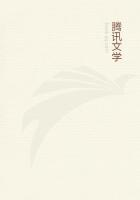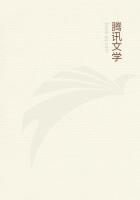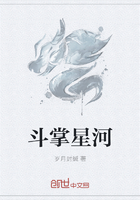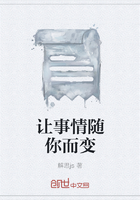Bacon's views, as may easily be supposed, were widely different. [De Augmentis, Lib. v. Cap. 5.] The powers of the memory, he observes, without the help of writing, can do little towards the advancement of any useful science. He acknowledges that the memory may be disciplined to such a point as to be able to perform very extraordinary feats. But on such feats he sets little value. The habits of his mind, he tells us, are such that he is not disposed to rate highly any accomplishment, however rare, which is of no practical use to mankind. As to these prodigious achievements of the memory, he ranks them with the exhibitions of rope-dancers and tumblers. "These two performances," he says, "are much of the same sort. The one is an abuse of the powers of the body; the other is an abuse of the powers of the mind. Both may perhaps excite our wonder; but neither is entitled to our respect."
To Plato, the science of medicine appeared to be of very disputable advantages. [Plato's Republic, Book iii.] He did not indeed object to quick cures for acute disorders, or for injuries produced by accidents. But the art which resists the slow sap of a chronic disease, which repairs frames enervated by lust, swollen by gluttony, or inflamed by wine, which encourages sensuality by mitigating the natural punishment of the sensualist, and prolongs existence when the intellect has ceased to retain its entire energy, had no share of his esteem. A life protracted by medical skill he pronounced to be a long death. The exercise of the art of medicine ought, he said, to be tolerated, so far as that art may serve to cure the occasional distempers of men whose constitutions are good. As to those who have bad constitutions, let them die; and the sooner the better. Such men are unfit for war, for magistracy, for the management of their domestic affairs, for severe study and speculation. If they engage in any vigorous mental exercise, they are troubled with giddiness and fulness of the head, all which they lay to the account of philosophy. The best thing that can happen to such wretches is to have done with life at once. He quotes mythical authority in support of this doctrine; and reminds his disciples that the practice of the sons of Aeculapius, as described by Homer, extended only to the cure of external injuries.
Far different was the philosophy of Bacon. Of all the sciences, that which he seems to have regarded with the greatest interest was the science which, in Plato's opinion, would not be tolerated in a well-regulated community. To make men perfect was no part of Bacon's plan. His humble aim was to make imperfect men comfortable. The beneficence of his philosophy resembled the beneficence of the common Father, whose sun rises on the evil and the good, whose rain descends for the just and the unjust. In Plato's opinion man was made for philosophy; in Bacon's opinion philosophy was made for man; it was a means to an end; and that end was to increase the pleasures and to mitigate the pains of millions who are not and cannot be philosophers. That a valetudinarian who took great pleasure in being wheeled along his terrace, who relished his boiled chicken, and his weak wine and water, and who enjoyed a hearty laugh over the Queen of Navarre's tales, should be treated as a caput lupinum because he could not read the Timaeus without a headache, was a notion which the humane spirit of the English school of wisdom altogether rejected. Bacon would not have thought it beneath the dignity of a philosopher to contrive an improved garden chair for such a valetudinarian, to devise some way of rendering his medicines more palatable, to invent repasts which he might enjoy, and pillows on which he might sleep soundly; and this though there might not be the smallest hope that the mind of the poor invalid would ever rise to the contemplation of the ideal beautiful and the ideal good. As Plato had cited the religious legends of Greece to justify his contempt for the more recondite parts of the heart of healing, Bacon vindicated the dignity of that art by appealing to the example of Christ, and reminded men that the great physician of the soul did not disdain to be also the physician of the body. [De Augmentis, Lib, iv. Cap.2]
When we pass from the science of medicine to that of legislation, we find the same difference between the systems of these two great men. Plato, at the commencement of the Dialogue on Laws, lays it down as a fundamental principle that the end of legislation is to make men virtuous. It is unnecessary to point out the extravagant conclusions to which such a proposition leads. Bacon well knew to how great an extent the happiness of every society must depend on the virtue of its members; and he also knew what legislators can and what they cannot do for the purpose of promoting virtue. The view which he has given of the end of legislation, and of the principal means for the attainment of that end, has always seemed to us eminently happy, even among the many happy passages of the same kind with which his works abound. "Finis et scopus quem leges intueri atque ad quem jussiones et sanctiones suas dirigere debent, non alius est quam ut cives feliciter degant. Id fiet si pietate et religione recte instituti, moribus honesti, armis adversus hostes externos tuti, legum auxilio adversus seditiones et privatas injurias muniti, imperio et magistratibus obsequentes, copiis et opibus locupletes et florentes fuerint." [De Augmentis, Lib. viii. Cap. 3, Aph. 5.]
The end is the well-being of the people. The means are the imparting of moral and religious education; the providing of everything necessary for defence against foreign enemies; the maintaining of internal order; the establishing of a judicial, financial, and commercial system, under which wealth may be rapidly accumulated and securely enjoyed.

